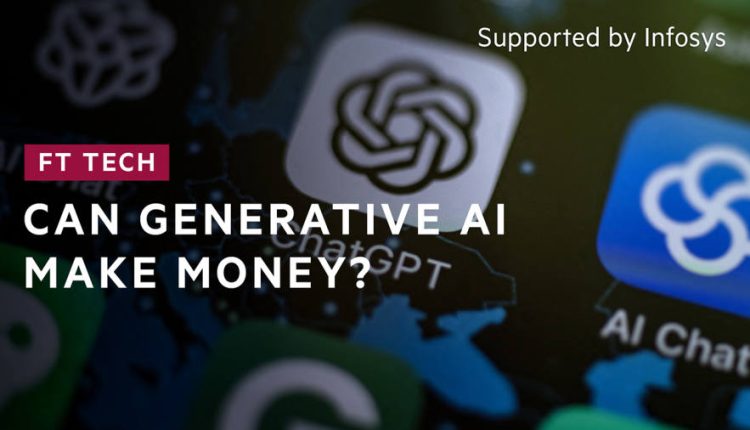You can enable subtitles (captions) in the video player
It has been hailed as a digital panacea, a transformative technology predicted to change the course of history. The fastest online platform to rocket to 100mn users has sparked excitement and fear in equal measure.
But, for the first time since the viral launch of ChatGPT in late 2022, its number of users has fallen, and the question of how to price a novel service like ChatGPT and sell it successfully looms on tech bosses’ minds.
Silicon Valley titans and industry leaders have invested eye-watering sums of money into the likes of Sam Altman’s OpenAI, which launched ChatGPT. 50 of the most promising generative AI start-ups have raised more than $19bn in funding since 2019.
11 of these now count as unicorns, with valuations above $1bn. And while the consultants McKinsey have estimated that globally generative AI could add up to $4.4tn of economic value, equivalent to the size of the UK economy, every year, industry insiders are beginning to question whether generative AI can live up to the hype.
Twitter founder Jack Dorsey has warned companies against spending too much too early on generative AI, saying that the buzz around it could lead to aimless spending and inferior returns. Sam Altman’s OpenAI reportedly spent upwards of $500mn last year, and those costs are said to be still growing, something that could turn OpenAI, by Sam Altman’s own admission, into one of the most capital intensive start-ups in Silicon Valley history.
Microsoft, which has invested north of $10bn into OpenAI, incorporated GPT-4 into its Bing search engine back in February, but it’s failed to make a dent in Google’s market dominance so far.
Meanwhile, concerns about generative AI’s tendency to fabricate facts have rendered it too unreliable for many applications. Copyright lawsuits are stacking up too, with creators angry at ChatGPT’s legally questionable hoovering up of original content.
GPT-3.5 is still free for consumers, but Sam Altman has said that it will have to be monetised at some point, and OpenAI has just released an enterprise-grade version of ChatGPT.
Perhaps tellingly, the biggest winner in the generative AI revolution so far isn’t a chat bot, but a hardware manufacturer. Chipmaker giant Nvidia, which produces the graphics processing units, or GPUs, that are powering the generative AI boom, has seen its shares soar by more than 200 per cent this year, sending the company’s valuation to over $1tn.
Read the full article here

